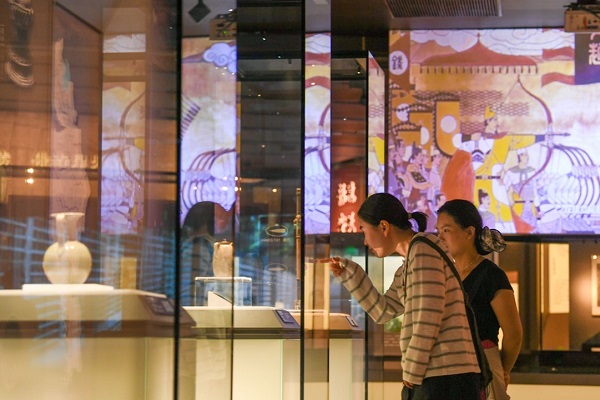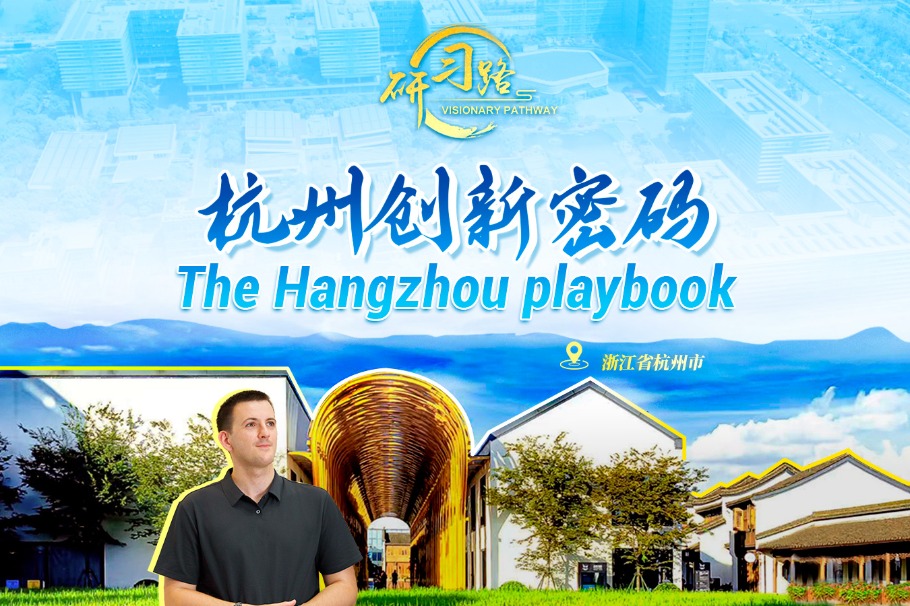Archaeological project to provide 'visual evidence' of ancient culture in Zhejiang

Wuyue Culture Museum [Photo/VCG]
The launch of the Wuyue Kingdom archaeological project in East China's Zhejiang province will help clarify the historical development of the Zhejiang region and provide "visual evidence" of the region's ancient culture, a historian told the Global Times on Monday.
The Wuyue Kingdom was an important regional regime during the Five Dynasties (907-960) and Ten States period (902-979). With Hangzhou as its capital, its domain roughly covered present-day Zhejiang province, the southeastern part of Jiangsu province (Suzhou), Shanghai, and the northeastern part of Fujian province (Fuzhou).
Running from 2025 to 2030, the Wuyue Kingdom project is part of the major "Archaeology China" program and represents an important step in advancing the protection and inheritance of Wuyue's history and culture.
Bearing distinctive regional characteristics and significant historical value, its culture inherited that of the Tang Dynasty (618-907) and paved the way for the Song Dynasty (960-1279).
Historian Zhou Xueying told the Global Times that although it represented a local culture, it possessed an all-round socio-cultural development system.
"For example, the Wuyue culture had a very clear political stance, while it was rooted in the Zhejiang region, it had always respected the Central Plains culture," Zhou said.
Archaeological research on ancient political systems like this also "serves as a case study for how Central Plains culture influenced local regimes dating back to ancient times," Zhou noted.
Zhou also mentioned that in ancient times, the Wuyue Kingdom was a crucial economic hub in China, where agricultural production and water conservancy projects were highly developed.
This new archaeological investigation can help people understand "how local agriculture evolved," thereby shedding light on early social life and structures around the region, Zhou added.
The project will focus on key research areas such as the political system, mausoleum system, and handicraft technologies of the Wuyue Kingdom, according to a report by the Zhejiang Provincial Institute of Cultural Relics and Archaeology (ICRA).
It will encompass seven sub-topics: studies on Wuyue's urban construction and development; the inheritance and evolution of tombs of military governors during the Five Dynasties; the development and exchange of handicrafts in the region during the Tang-Song transition; the growth and integration of Wuyue's religious culture; the characteristics and dissemination of architectural techniques in the Wuyue region from the Five Dynasties to the Northern Song; the development of Wuyue's political institutions and their influence on later generations; as well as the use of spatial information mining to create visual and knowledge-based historical and cultural narratives.
In addition, the project plans to build a cultural relics database of the Wuyue Kingdom to promote systematic cataloging and digital preservation of heritage resources.
Zhou compared the Wuyue project with another significant archaeological finding in Zhejiang - the Liangzhu site, which gained UNESCO World Heritage status in 2019 as a testimony to the existence of Chinese civilization at least 5,000 years ago.
"Although they existed in different eras, both the Wuyue Culture and Liangzhu Culture boasted rich traditions of craftsmanship, including ceramics, silk textiles, and tea production. These historical remains are what made this craftsmanship part of the cultural heritage of the province today," Zhou added.
The ICRA is joined by archaeological institutions from Shanghai, Jiangsu, and Fujian, as well as Peking University in the project, which seeks to systematically advance the survey of cultural relics, archaeological excavations, and comprehensive studies of the Wuyue Kingdom period through cross-provincial and multi-institutional collaboration.
Launched by the National Cultural Heritage Administration, the "Archaeology China" program explores subjects such as the origin of humanity in China and the formation of Chinese civilization.
-
Global experts at Tianmu Mountain feel harmony of nature, culture
September 28, 2025
-
4th Global Digital Trade Expo kicks off in Hangzhou
September 25, 2025
-
Hangzhou to welcome global experts on ecology
September 17, 2025
-
Visionary Pathway - Hangzhou Playbook
July 15, 2025



